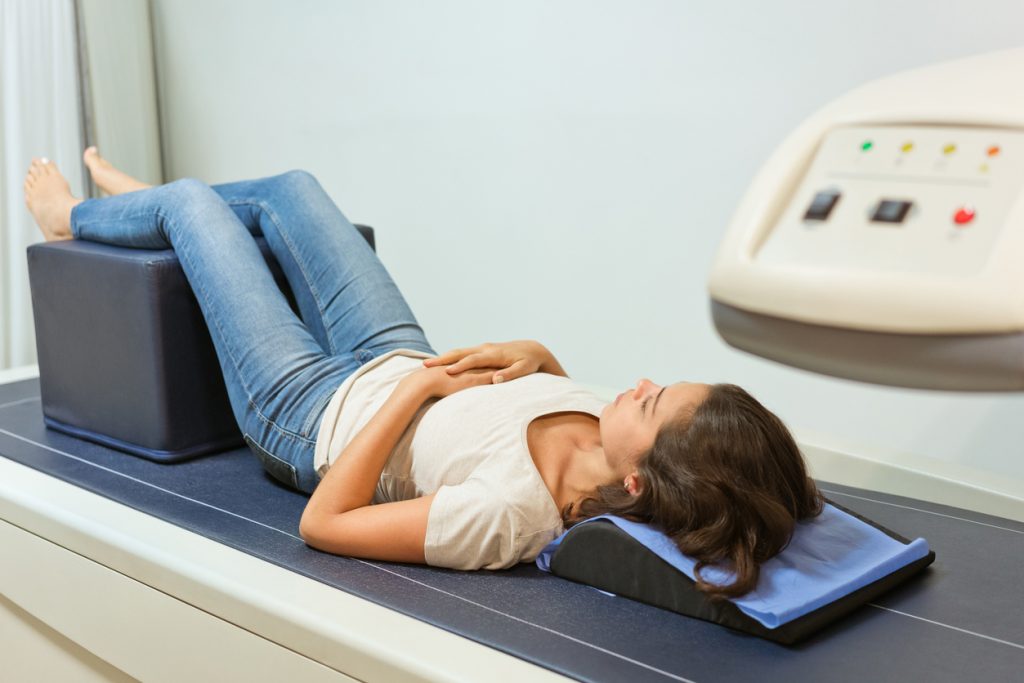Why Some Women Should Have a Bone Density Test

As women age, they become more at risk for developing osteoporosis, a disease that weakens bones and leaves them susceptible to fractures. Affected bones become weaker and brittle. Osteoporosis doesn’t have any painful symptoms, so those who have it may be unaware there is a problem. Often the first indication of osteoporosis is a broken bone. A bone density scan is a medical imaging test that measures the thickness and strength of the bones and determines whether osteoporosis is present.
Why are women at risk?
Women are four times more likely than men to develop osteoporosis. Women who have gone through menopause are at increased risk because their hormone levels have changed. Estrogen, a hormone that protects against bone loss, declines after menopause. Other risk factors for osteoporosis include a family history of the disease, having a petite body frame, and living an inactive lifestyle. Medical conditions such as rheumatoid arthritis, lupus, liver disease, and kidney disease increase the risk. Some medications, including certain steroids and cancer drugs, may also increase a person’s risk. Ethnicity is a contributing factor, as Caucasian and Asian women seem to have a higher incidence of osteoporosis.
When should a woman be tested?
A referral from a healthcare provider is generally needed for a bone density test. Women aged 65 and older should have a test. Women aged 64 and younger who are post-menopausal should consult with their doctor, who may recommend a bone density test depending on their other risk factors. Many doctors advise a bone density test for women over age 50 who have fractured a bone, particularly a hip, wrist, or vertebrae.
What is a bone density test like?

A bone density test, also known as a DEXA scan, is a low-dose x-ray. The scan takes 15-30 minutes and is totally painless. No special preparation is required before the scan. Areas of the body that are usually examined include the bones of the spine, hips, wrist, forearms, fingers, and heels. The scan results are reviewed by a radiologist, and a report is sent to the referring physician.
Next Steps
The physicians at RMD Primary Care consider bone health to be an important women’s health issue. Since osteoporosis is often called a “silent” disease due to its lack of symptoms, it’s important to have a bone density test to evaluate bone health. Medications are available for the treatment of osteoporosis. For more information about women’s health services available from RMD Primary Care, contact us today.




